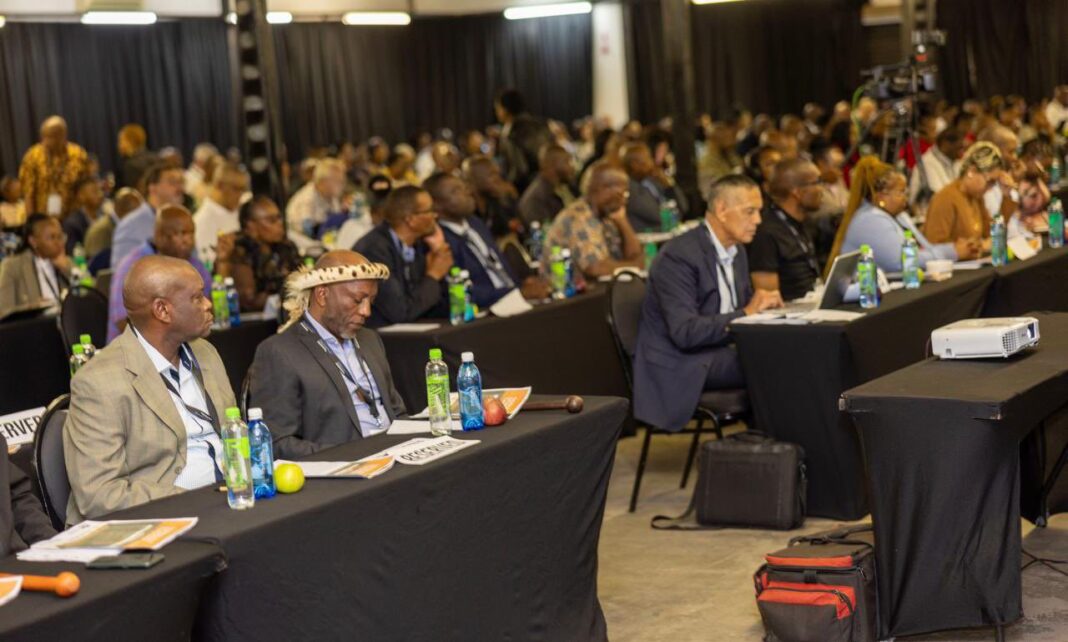Staff Reporter
Gauteng finance MEC Lebogang Maile has raised concerns regarding the municipal audit outcomes for the 2022/23 financial year.
Addressing a two-day Local Government Turnaround Summit in Johannesburg, Maile said that out of the 11 municipalities in the province, only seven received unqualified audit opinions.
The summit was opened by provincial cooperative governance and traditional affairs (Cogta) MEC Jacob Mamabolo, and featured addresses by Gauteng premier Panyaza Lesufi and COGTA Deputy Minister Dickson Masemola.
It was also attended by leaders from municipalities across Gauteng, as well as experts from academia and the private sector.
Maile raised particular concerns over the City of Ekurhuleni’s regression from a clean audit to an unqualified opinion, with findings primarily due to non-compliance issues.
Mogale City and Emfuleni local municipalities, while addressing specific matters that led to prior-year qualifications, encountered new qualification issues, causing them to stagnate with qualified audit opinions.
Merafong City Local Municipality, on the other hand, remained a key area of concern, continuing to receive a disclaimed audit opinion.
This outcome stemmed from poor record management and weaknesses in the municipality’s overall control environment, said Maile.
“For the current audit cycle, the Gauteng Provincial Treasury performed technical reviews before submission to the office of the Auditor-General. These efforts were recognised and highly appreciated by the AGSA as an attempt to instill a culture shift towards achieving good governance,” said Maile.
“During the audit process, the provincial treasury will be attending municipalities’ audit steering committee meetings to support municipalities in technical interpretations and consistent application of standards. Post the audit process, we will support municipalities in developing their audit action plans as per Section 131 of the MFMA to address the current year audit findings.”
Maile said that in a bid to support and strengthen the capacity of municipalities to manage their own affairs, the provincial treasury has appointed 10 technical advisors to provide firsthand assistance to district and local municipalities.
These advisors will offer expertise across various aspects of municipal financial management, including the implementation of Financial Recovery Plans for municipalities under provincial intervention.
This initiative is part of the provincial treasury’s Hands-on Support Programme. It is aimed at addressing capacity challenges, improving financial management and enhancing reporting standards within local government, according to Maile.
“To strengthen intergovernmental relations, I regularly meet and engage with the MMCs for finance in municipalities to discuss the root causes and remedial actions plans for any persistent breach of the MFMA and its related regulations,” said Maile.
“This work would be monitored on a regular basis to ensure that all resolutions taken at these engagements are fully implemented. The Gauteng Provincial Treasury remains deeply committed to ensuring that we strengthen the governance and financial management of our municipalities in order that they may be able to serve our communities.”
Maile further told the summit that as of 31 July 2024, the total outstanding debt owed to municipalities in Gauteng has surged to R132,532 billion.
He said this debt was owed by households, commercial entities and organs of state.
Households accounts owed the largest portion at R99,343 billion, while commercial entities owe R27,886 billion. Organs of state owe R3,730 billion.
He further pointed out that in comparison, the outstanding debt in June 2024 stood at R12,073 billion, adding that the increase of over R5 billion in just 30 days highlighted a troubling trend in debt growth on a month-to-month basis.
“Our municipalities are struggling to collect revenue, and this is a serious cause for concern,” he said.
Maile further revealed that as of 31 July 2024, the total outstanding creditors owed by municipalities stood at R27,098 billion.
This debt is primarily owed to Eskom, Rand Water and other service providers for services rendered but not yet paid.
Eskom is owed R19,650 billion, while Rand Water is owed R2410 billion.
He said only 31.6% of this balance related to current accounts – those outstanding for than 30 days.
The remaining 68.4% is in violation of Section 65(2)(e) of the Municipal Finance Management Act, indicating severe non-compliance.
“This demonstrates not only poor financial controls and governance, but it also poses a very serious threat to economic and social development within our communities,” he said.
INSIDE POLITICS

